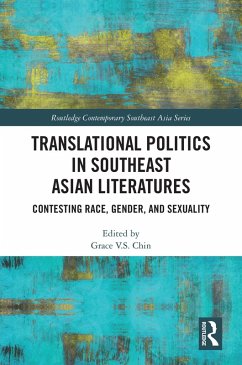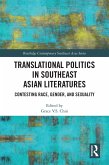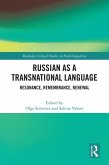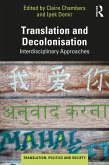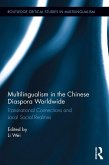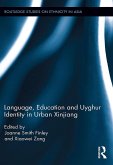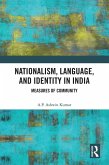Dieser Download kann aus rechtlichen Gründen nur mit Rechnungsadresse in A, B, BG, CY, CZ, D, DK, EW, E, FIN, F, GR, HR, H, IRL, I, LT, L, LR, M, NL, PL, P, R, S, SLO, SK ausgeliefert werden.
This important collection builds upon the discipline of comparative culture studies in Southeast Asia by exploring contestations of race, gender, and sexuality through the lens of "translational politics." The objects under view are the region's nationally based or globally shared filmic and literary texts. This lens also reveals the imbrication of both the contradictions and homogeneity, which late neoliberal globalization has fostered throughout the region, with its seductive mediascapes and commodity culture often disruptive of pre-existing norms. This disruption includes the private and public contestations over definitions and shifting values associated with legalized entitlements attributed to race, gender, and sexuality. It is this disrupted positionality, an experience shared by many South East Asians, that is explored in this noteworthy collection of essays through the lens of translational politics. Teri Shaffer Yamada, Asian and Asian American Studies, California State University

